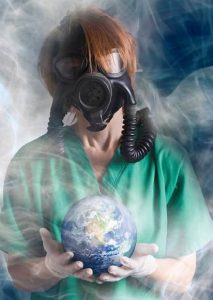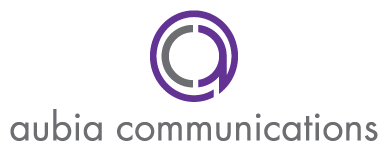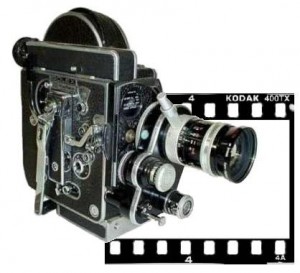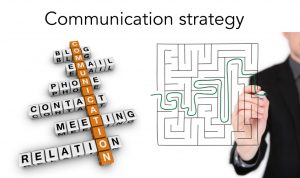In August, I will focus on Public Relations professionalism. I’ll start with ethics in the career field and continue with professional nuances and higher education.

Spin doctor. Flak. Propagandist. Liar.
These terms used to refer to Public Relations professionals are hard to hear, but I’m well aware of the negative, and largely incorrect, perception that many have of my field. With a history of less-than-stellar moral practices, PR has come a long way in finding and championing an ethical code of conduct. Before hiring any PR professional, you should know where that practitioner stands on ethics in the industry.
Public Relations in the beginning
Forms of PR can be found in the earliest civilizations. According to the Bible in the book of Exodus, God appointed Aaron as a spokesperson for Moses who was concerned about his public speaking skills. The ancient Greek and Roman societies understood how public opinion could affect the outcome of political decisions. The Catholic Church in the time of kings of queens developed communication methods to spread the faith throughout the world. Samuel Adams and other patriots used PR techniques, such as special events like the Boston Tea Party, to sway public opinion to the views of the Revolutionists.
In the United States of America, PR found its roots in press agentry and other forms of promotion. Distinct from today’s definition of PR, this 19th Century model advocated outlandish and many times deceitful stunts to attract public attention. The best known agent of these exploits was Phineas Taylor Barnum when it came to promoting the circus coming to town.
During this time, PR methods were also used to unethically crush opposition to powerful monopolies. In this era of “the public be damned,” corporations viewed the public, media and employees as a detriment instead of an asset.
With these over-the-top and unscrupulous tactics, many, especially media members, became suspicious of such agents. Unfortunately, that wariness has carried over to today’s PR practitioners.
Public Relations evolves
PR as it is practiced today began taking root at the turn of the 19th Century with practitioners like Ivy Ledbetter Lee and Edward L. Bernays. These pioneers in the career field were the first to understand that PR for the product or service is only as good as the actual object is deserving of the credit. With the turning point of the Carnegie-Frick Steel Strike of 1892 and the creation of muckraking journalism, modern PR began the entry into what Bernays deemed the “public be informed” period.
With the realization that companies could no longer deceive the public and continue to be profitable, PR professionals began to serve two principal audiences: the organizations they work for and the publics they depend on for success. It has been in the modern PR era that industry ethics has come to the forefront.
Public Relations gets ethical
Chartered in 1947, the Public Relations Society of America is the world’s largest professional organization for the career field. It developed its first Code of Professional Standards in 1954 and has continually updated the code to reflect the present business environment. As a member, I have taken a pledge to uphold the PRSA Code of Ethics, and I take that oath seriously.
The code speaks about interacting with clients honestly, accurately, fairly and with integrity. In the industry, practitioners should (and most do) uphold this code at all times. Not only do our clients expect it of us, but we should expect it of ourselves and fellow professionals.
There are regrettably ample examples of PR professionals not following an ethical code today, and there are those that claim to be practicing PR, yet their actions prove they are doing anything but. (Shel Holtz recently addressed the need for certification in the industry due to this very problem. Check it out here.)
Thankfully, these types of behavior are not the norm in the industry, and real professionals are the first to police these actions (just check out the comments to any post about such unethical ploys). So, how can you determine if you’re working with a true PR professional committed to ethical practice?
1. Ask for proof
Does the practitioner prescribe to a professional code of ethics? Even if the practitioner isn’t a member of a professional organization, such as PRSA or the International Association of Business Communicators, they can still pledge to uphold ethical conduct. Ask the professional what he feels would be ethical versus unethical behavior. After reading the professional codes of ethics, judge for yourself if the answer falls in line.
2. Check the track record
How has the professional represented past clients? Research the practitioner’s past work. Was he involved in any ethical transgressions? What was the outcome? If you do find anything questionable, ask for an explanation.
3. Argue the case
How would the professional handle an ethical dilemma working for you? One of the most common questions in any job interview for PR professionals is to describe a time they were faced with an ethical dilemma and how they handled it. Do the same when you’re interviewing a practitioner for your PR needs. Determine if the answer matches up with what you expect of someone who will represent your brand.
PR professionals are striving for ethical practice every day, working to banish the negative perception many have of our field. Be sure that the PR practitioner you work with is dedicated to a code of ethics worthy of representing your brand.
How do you think PR professionals should handle ethical dilemmas? Have you been faced with a professional ethical dilemma before? What did you do?



